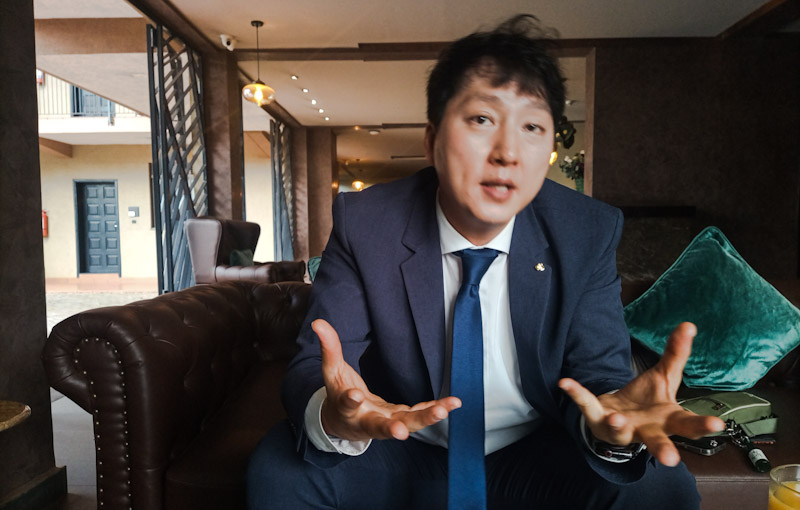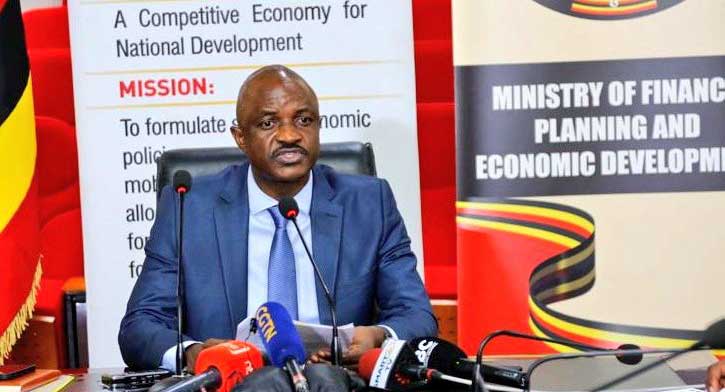It is not surprising that the traders protested this non-tariff barrier. Ugandans cannot simply understand what government is talking about when it moves to stop entry of “cheap products” meant for the poor. In Uganda it is actually abnormal to find a genuine product on market. What is surprising is that government has finally come out to regulate imports.
In April 2011, toilet rolls, blue-band, and candle wax!
Lack of surveillance of imports
I have written in these pages before showing how lack of surveillance of imports turned Uganda into a dumping ground and a ‘Guinea pig’. Many other people have alluded to the same. It’s good that government has heard our voices and moved to do something against this tragedy.
I came to realise the magnitude of this tragedy when I carried out a simple study on how we (Ugandans) spend our daily lives. Do we add any value to our GDP through the activities that we engage in daily? I woke up one day having set my alarm clock (Made in China) for 5am to write about Uganda’s trade policy. I switched on my bedside lamp (Made in India), pulled out my laptop (Made in China) sat on my reading table (Made in Malaysia) and wondered whether Uganda had a trade policy, a vision, or for that matter a future.
After a moment of reflection I remembered the routines. I put on my Bata sandals (Made in Kenya), rushed to the washroom (with all its accessories made in India and China) and picked my toothbrush and paste (Made in Kenya). I washed my face with Geisha soap (again from Kenya), pulled out a towel (Made in China) and headed for the living room for the morning prayer (Made in Saudi Arabia). I pulled out my prayer mat (Made in Tanzania) and recited those Arabic words to guide me through the day full of aliens.
After the prayer, I returned to my Malaysian reading table and started to wonder whether my country was still Uganda. I turned on my TV (Made in Japan) to watch the morning news (read by a Kenyan) in which the newsreader informed me that Uganda’s current account deficit had widen to $1,095 million, while inflation had reached double digits, with food inflation accelerating at 26%. I wondered little.
Before long I realised that time was not on my side, so I picked my new electric kettle (Made in China) to fix myself a cup (Made in China) of Nescafe (Made in Kenya). I reached for some biscuits (Made in Egypt) and a piece of bread coated with blue band (Made in Kenya). I cleaned my teeth with some toothpick sticks (Made in China), opened the refrigerator (Made in China) for a glass (Made in China) of Ceres juice (Made in South Africa).
Where is “Made in Uganda”?
After the breakfast, I put on my shirt (Made in USA), jeans (Made in China), and a pair of shoes (Made in Italy). I got into my car (Made in Japan) drove to the nearest filling station for some fuel (Made in Libya), went to the bank (Managed by a Kenyan) to draw some money to buy my mother, staying in the village, some basmati rice (from Pakistan).
I reached my pocket for my mobile (Made in China) to call my mother to let her know, the rice was on the way to Butambala, my ancestral home. When I called her she reminded me that I don’t forget to attend my niece’s birthday. The young girl had turned 8 and I was asked to buy the birthday candles (made in China). That is when I realised that all along I had been spending on consumables and talking to relatives and friends without producing anything. I usually ask my students to check their rooms and count the number of items in there with a label, “Made in Uganda.” One came back to report the results, “I checked sir and found that I was the only product in the room that was made in Uganda!”
Well, that is the country that we hope to attain middle income status in a couple of years! That is the country that my friends at the National Planning Authority envision to transform into a developed country in 40 years! Weird, wild dreams!
You simply cannot transform a country that not only fails to carry out surveillance on imports, but also lacks policy on proper regulation of foreign investment. Uganda has turned into a poaching ground where everyone comes and claim to be an investor, get free land, use it as collateral to get loans from banks, abuse Ugandans who offer them services simply because “President Museveni assured us maximum protection.”
No vision or plan can transform a country where ‘foreigners’ are allowed up to 100% ownership of investments, guaranteed repatriation of profits and dividends, enjoying a VAT deferral facility, zero rate of tax on imports of plant machinery and equipment, exempt from withholding tax, a 10-year tax holiday, and other generous incentives.
Why I don’t blame KACITA
Like I always here, I am not too brash and unsophisticated not to know that countries the world over grow by encouraging and giving incentives to foreign direct investments (FDI). The point I usually want to put forward is that this government must stop using FDI in the same way a drunkard uses street poles — for support instead of using them for illumination. Your government Mr. President thinks that by merely opening up for more FDI (genuine or not) Uganda will grow.
Nobel Laureate Joseph Stiglitz wrote in his 2006 book “Making Globalization Work” that only those countries that have ability to take advantage of globalization, without being taken advantage of by globalization, benefit from globalization. Uganda is that country being taken advantage of by globalization, instead of taking advantage of globalization.
The countries that inspire us to perk up investments, such as the East Asian tigers, did take advantage of globalization, and never allowed globalization to take advantage of them the way we have done here.
The KACITA traders who are holding us at ransom are agents of bad globalization. They are salesmen of China, India, Kenya and other countries where the products they are hawking originate. They may claim they pay tax and create jobs for themselves and few other Ugandans, but a simple cost-benefit analysis will reveal that the benefits that accrue from them are significantly dwarfed by the costs they inflict on the Ugandan economy.
But I don’t blame them; I blame this government for failing to see basic economics and move to fix its failures. That’s why I feel KACITA traders are very lucky; they are dealing with cattlemen whose knowledge of business is as newly acquired as their leadership skills!








